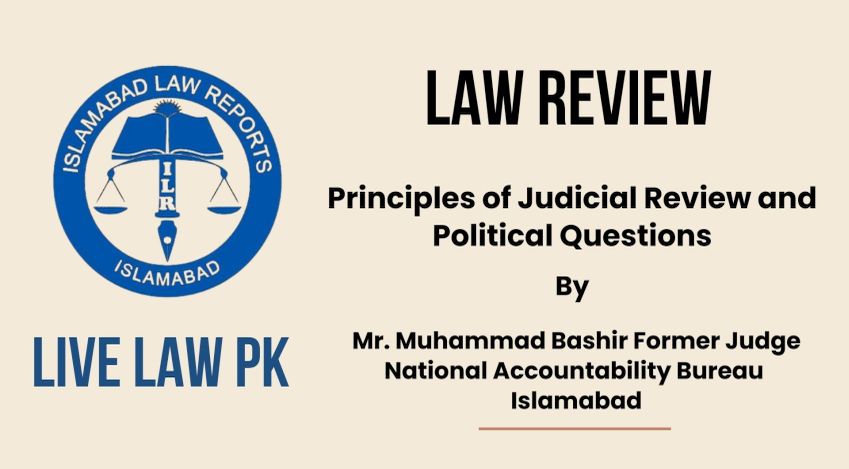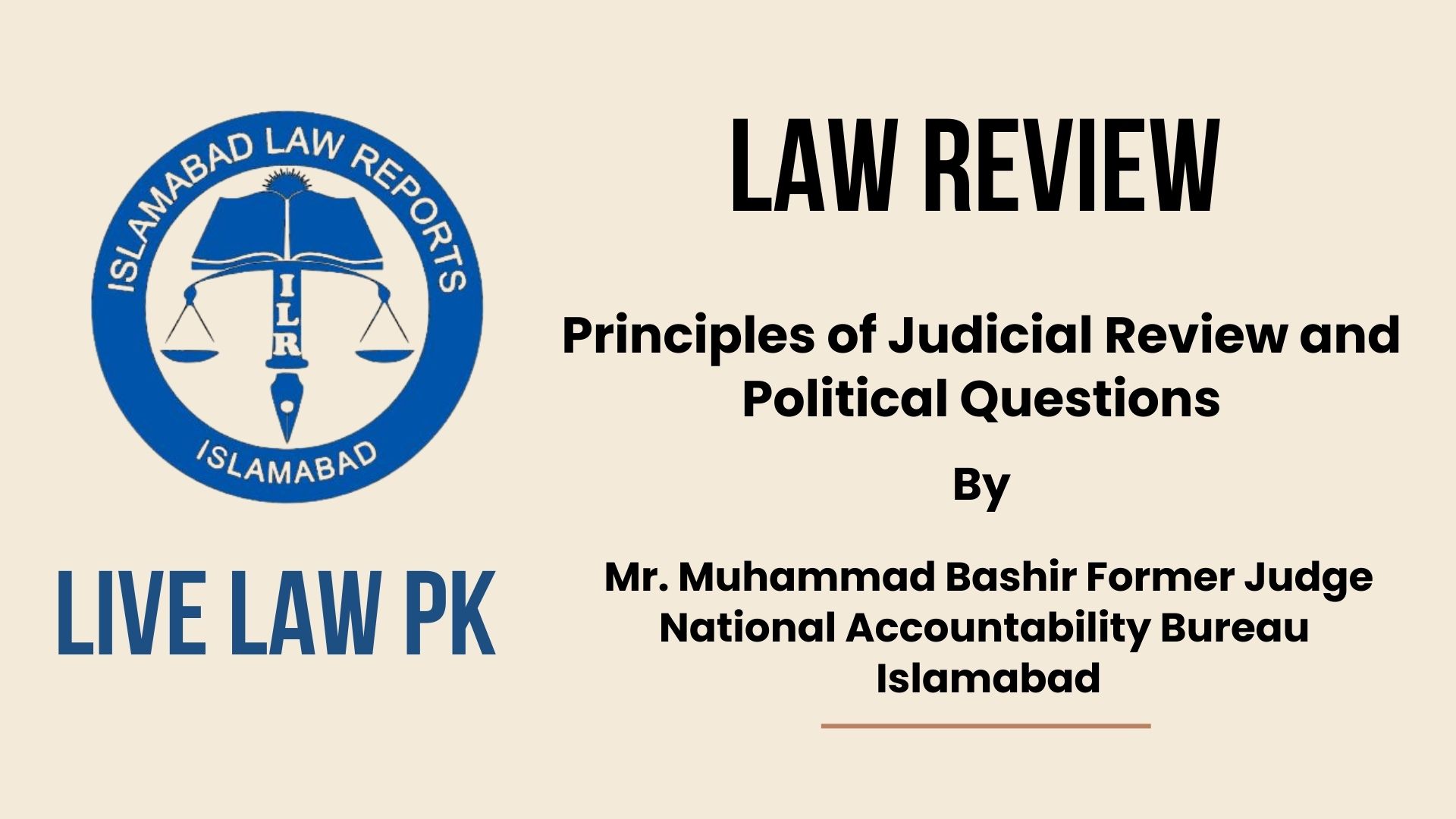Principles of Judicial Review and Political Questions; Chapter 2 - Legitimacy of Judicial Review
Abstract
06-01-2025: The chapter explores the separation of powers in Pakistan, focusing on the distinct roles of the Legislature, Executive, and Judiciary. It highlights that the people of Pakistan, through their constitution, have chosen a limited government where each organ's powers are defined and restricted by the constitution. Controversies over the limits of these powers arise, necessitating an authoritative body to act as the final arbiter of disputes. The judiciary is emphasized as this body, with its primary role being the ultimate interpreter of the constitution, particularly when conflicts between the executive and legislative branches occur.
Key theorists like Montesquieu, Madison, and Hamilton are referenced to underline the judiciary’s role in preventing the abuse of power. While not directly elected, judges hold significant responsibility in protecting minority rights and ensuring that both legislation and executive actions adhere to constitutional limits. The judiciary’s independence is preserved through constitutional provisions that secure judges' tenure and salaries, allowing them to operate free from political pressure.
The chapter also examines the judiciary's role in maintaining fundamental rights, ensuring that laws passed by the legislature do not infringe upon citizens' constitutional rights. Judicial review serves as a crucial check on the executive and legislature, enforcing the rule of law and safeguarding civil liberties. It asserts that the judiciary does not have power over the "sword or purse" (executive or financial powers) but ensures that constitutional provisions are upheld.
Various legal precedents, including landmark cases like Marbury v. Madison, are discussed to demonstrate the judiciary’s evolving role in interpreting constitutional and statutory provisions. It also examines the judicial decision-making process, which involves interpreting legal texts, applying laws to specific cases, and resolving disputes through deductive reasoning.
The chapter concludes that judicial review is a manifestation of the will of the people and is integral to the structure of Pakistan’s governance, ensuring that no branch of government exceeds its constitutional limits. The judiciary is not only a guardian of the constitution but also an enforcer of fundamental rights, making judicial review essential for the preservation of democracy, rule of law, and civil liberties.
This chapter provides an in-depth exploration of the legal foundations of judicial review and its necessity in maintaining the balance of power and upholding constitutional principles in Pakistan.
Powered by Froala Editor







